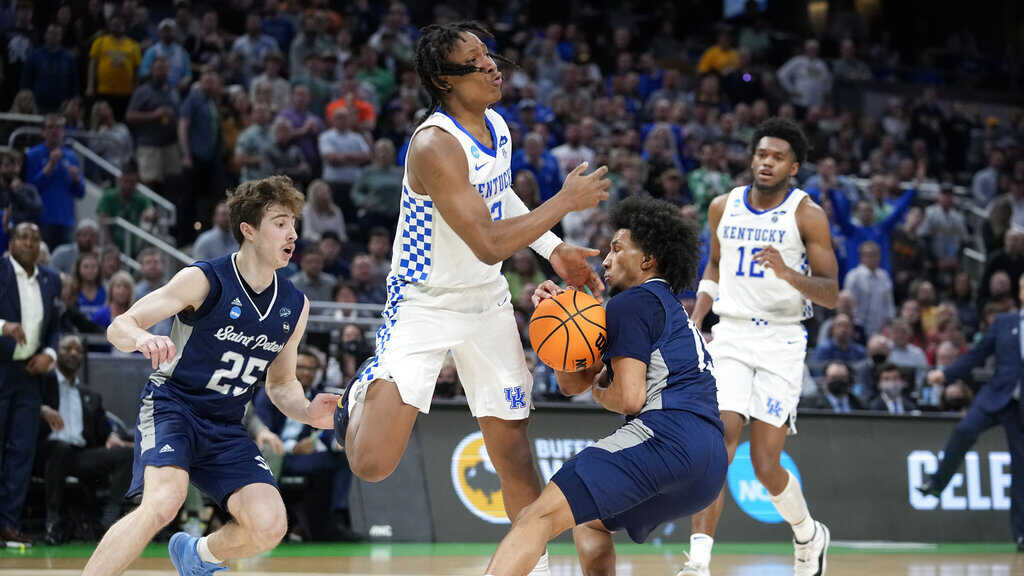
Saint Peter's guard Matthew Lee, right, steals the all from Kentucky guard TyTy Washington Jr. (3) during overtime in a college basketball game in the first round of the NCAA tournament, Thursday, March 17, 2022, in Indianapolis. (AP Photo/Darron Cummings) Darron Cummings/AP hide caption

Saint Peter's guard Matthew Lee, right, steals the all from Kentucky guard TyTy Washington Jr. (3) during overtime in a college basketball game in the first round of the NCAA tournament, Thursday, March 17, 2022, in Indianapolis. (AP Photo/Darron Cummings)
Darron Cummings/APThe NCAA's March Madness Tournament is upon us, and after more than two years of pandemic restrictions at sporting events, stands are packed to full capacity with fans.
Transformative changes are happening off of the court too: for the first time in March Madness history, college athletes can cash in on endorsement deals because of changes to the NCAA's Name, Image and Likeness (NIL) policies, which are a result of a Supreme Court ruling last summer.
While the new arena in college sports has been lucrative for athletes, with contracts reaching 7 figures, NIL advocates are concerned about the lack of legal and financial protections for students.
We speak with Stewart Mandel, Editor-In-Chief of college football at The Athletic, about how the current nature of NIL deals may risk exploiting student-athletes.
Email us at
This episode was produced by Jason Fuller and Jonaki Mehta. It was edited by Fatma Tanis, Lee Hale and Tom Goldman. Our executive producer is Cara Tallo.

 Live Radio
Live Radio